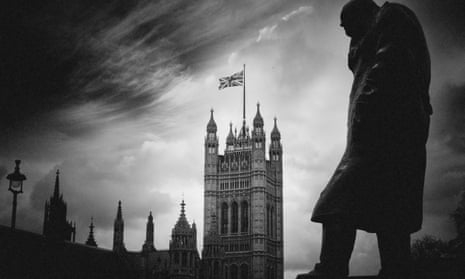This week we learned that MPs have received £183m on top of their parliamentary salaries since December 2019, after publicly available information on their financial interests was brought together in one place for the first time.
The Westminster Accounts tool, created by Sky News and Tortoise media, is intended to increase public transparency, and lifts the lid on obscure donation practices and how money is corrupting our politics.
We found out that former prime minister Theresa May was paid more than £2.5m, including £408,200 from the Cambridge Speaker Series; that ex-transport secretary Chris Grayling received £100,000 from Hutchison Ports; and that former attorney general Geoffrey Cox was paid a colossal £800,000 from the law firm Withers LLP.
It’s been pointed out that none of what has been exposed is illegal. But that is exactly the point. What’s been revealed is the latest example of the weaknesses in our model of government – which relies on “good chaps” behaving honourably – and how those with money are buying influence. Cross-party commentators are expressing dismay, even shock, but as a transparency and ethics campaigner since the 2008 financial crisis, I know only too well that dubious behaviour is an open secret in many parts of UK politics and business.
MPs of all parties are well aware that second jobs, advisory roles, consultancies, lobbying and other lucrative opportunities are open to them. The rules could have been tightened up years ago but, as we know, turkeys will never vote for Christmas.

And this matters, because when the public vote for their MPs, they should have confidence that their views and interests are being faithfully represented. The scale of these outside earnings – which total more than the salaries MPs receive – should puncture that confidence. For instance, the fact that MP John Hayes can earn £150,000 from oil trader BB Energy, while calling for more fracking and arguing against plans to phase out fossil fuels, should cause alarm bells to ring.
Some parties, now this issue is in the public consciousness, agree on the need for varying degrees of increased restrictions. But that’s not enough. It’s clear there should be no second jobs at all, bar a select few clearly set-out exceptions. MPs defend themselves by saying they always seek authorisation for what they’re doing from the relevant parliamentary body, but what if these bodies are too toothless to act? The Advisory Committee on Business Appointments (Acoba), set up back in 1975 to considers applications about new jobs for former ministers, has no powers of enforcement and depends on voluntary cooperation.
But cleaning up politics is about much more than stopping second jobs. Money is corrupting our corridors of power in many other ways. The Westminster Accounts tool also highlights millions in donations coming to MPs, and money from companies with no transparency as to the individuals behind them. Twenty-four MPs have accepted donations from a little-known broadband company, IX Wireless, many of them based in constituencies in the north of England, where the company builds its networks and has been involved in planning disputes.
Lord (Eric) Pickles, the Conservative peer who chairs the Acoba committee, has expressed concerns about these kinds of donations. “There is a degree of due diligence that members of parliament are not required currently to do under the rules, but basically should be, which is pretty straightforward, which is ‘Why is this organisation giving me money and do they expect anything in return?’,” he said.
Look around – almost every sector and region of the UK is broken. We need our elected representatives to be dedicated to fixing our country, focusing all their energies on their parliamentary and ministerial roles, and the interests of their constituents. When an MP such as Grayling, who had a disastrous track record as a minister, is earning £100,000 a year for seven hours a week from the company that owns and operates Felixstowe port, surely questions must be asked.
The banking and financial services sector has very strict money-laundering rules: why don’t we have the same in politics? I also believe we need to have a cap on donations per donor: it shouldn’t be more than £100,000 per donor per parliament. Money should not buy power: we are a democracy and it is the people’s interests that must come first, not those who profit from policies.
There are also other cleaning-up reforms needed – an improved lobbying register and a look into how all-party parliamentary groups (APPGs) operate, given recent reports of appalling behaviour on MPs’ foreign trips. APPGs have received more than £20m from external organisations since 2019. And we need to stop the revolving-door system that allows ministers to walk into lucrative jobs just three months after stepping down from office.
But we must start with honesty: power and money corrupt, and if we want our machinery of government to operate in the best interests of our country, we have to put in robust regulations – in law. The powers that be have had long enough to do the right thing but have failed: it’s now up to us to demand that they get their house in order.
Gina Miller is a transparency campaigner and the leader of the True & Fair party
Do you have an opinion on the issues raised in this article? If you would like to submit a response of up to 300 words by email to be considered for publication in our letters section, please click here.

